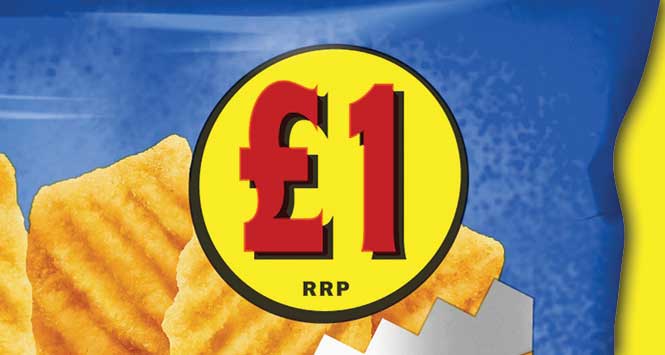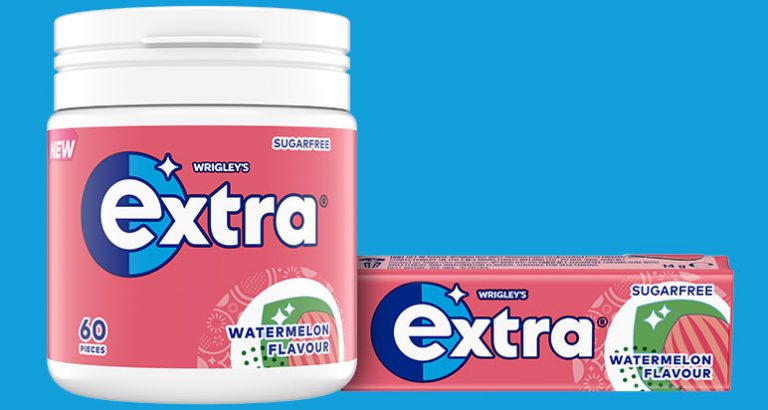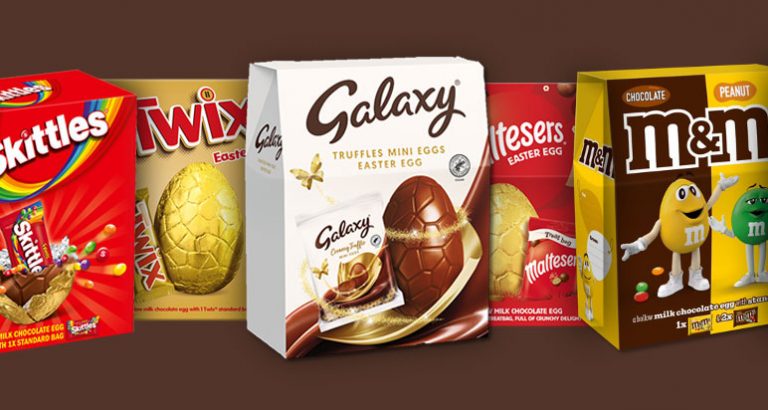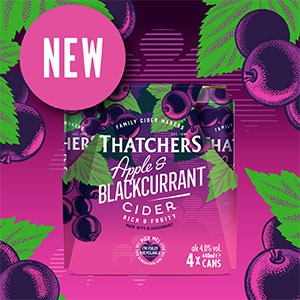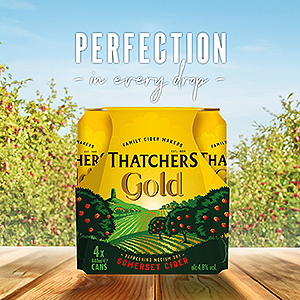Making the very best use of price-marked packs to drive cash profit means understanding when to make use of them – and when to avoid them.
by Antony Begley
Price-marked packs (PMPs) have a major role to play in retail these days, of that there is little doubt. But it’s wrong to flatly assume that the more PMP lines you can cram into your store the better. Losing control of pricing means losing control of cash margin and losing control of cash margin is something that all local retailers want to avoid.
Our experience in Woodlands Local tells us that PMPs invariably come at a cost. All those £1 bags of crisps and £1 hanging bags of confectionery are all well and good, but when the cost price rises, the only loser is the retailer. The manufacturer tends to maintain its margin, as does the wholesaler, while the customer still benefits from that falsely-capped price at the till. The only one taking a hit is the retailer.
So making best use of PMPs relies on understanding when they are most effective – and when they are best avoided. Remember, the principle here is that the PMP mechanism should drive up sales volumes (compared with plain packs) and those increased volumes should more than compensate for the lost cash margin per unit sold. So, if volumes don’t rise sufficiently then the retailer loses out.
One valid use of PMPs is to drive up impulse sales – sales that were unplanned and wouldn’t have happened otherwise – and two of the key impulse categories are Gum and Sugar Confectionery.
- 82% of retailers say they must stock PMPs to stay competitive
- 83% of retailers say PMPs sell faster than non-PMPs
- 59% of retailers say they are more likely to stock NPD with a PMP
- One-third of shoppers believe PMPs are cheaper
- 57% of shoppers want PMPs on crisps and snacks
Dan Newell, Confections Marketing Manager at Mars Wrigley Confectionery, says: “More than two-thirds of shoppers buy price-marked packs in convenience stores [HIM, 2015] as competitive pricing will encourage impulse sales. As well as offering good value, PMPs help retailers build a sense of confidence and trust with shoppers, with half saying PMPs reassure them that they are not being overcharged [HIM, 2013].
Following the successful launch of £1 PMP hanging bags and a new range of PMPs across its Skittles (55g) and Starburst (45g) singles formats, Mars Wrigley is looking to continue to grow the gum category with the launch of its £2 PMP Extra sugarfree gum 46 pellet bottle across its best-selling core flavours, Peppermint and Spearmint.
An exclusive format for convenience, the PMP bottle will help to improve rate of sale, as purchase intent in the gum category has been shown to significantly decline when priced above £2.
Another category where PMPs have a clear role to play in driving significant volume growth is crisps and snacks. Matt Collins, Sales Director for Convenience and Wholesale at KP Snacks, the company behind McCoy’s, says: “Crisps and Snacks remains a vital category within the convenience sector, with 82% of shoppers buying them on impulse [HIM, 2016]. £1 PMP ranges are growing at +15.3% versus non-PMP formats at -2.9% [Nielsen, Nov 2017].”
- To assess the benefit of price-marked packs retailers should ask:
- Do I need to offer this product as a PMP?
- Does the price mark give me a cost advantage at all?
- Could my customer profile be charged more than the price mark?
- Would a PMP erode the sense of a “treat” buy that comes from a higher value item like a premium tea?
Collins notes that KP Snacks is seeing demand for PMP formats remain strong as they provide shoppers with value, while highlighting that the company also continues to offer a comprehensive range of non-PMPs to give retailers choice.
He adds: “Our £1 PMP range is out-performing the category (+24%) and this success can be attributed to the strength of our brands as well as the right format [Nielsen, Nov 2017]. Our 39p PMP singles range is also growing ahead of the overall format at +22% and includes all-time favourites: Discos, Wheat Crunchies, Frisps and Skips.”
One less obvious category where PMPs can build sales and profits is Tea. Brett Grimshaw, Business Sector Controller Convenience and Out of Home for Tetley, comments: “PMPs are most important in high volume segments like every day teas and decaf where they help retailers demonstrate that they offer value, so help drive volume sales. A carefully chosen PMP like Tetley 160s at £3.99 can help retailers compete with larger stores in their area.”
Grimshaw also highlights that it’s vital PMPs are used carefully and considered as part of a wider mix of activity.
He says: “It’s about getting the balance right between offering the right price mark to encourage higher volume sales of essential products, and still leaving space for higher value lines which deliver greater margin sales and don’t necessarily need to be sold as a price mark.”


